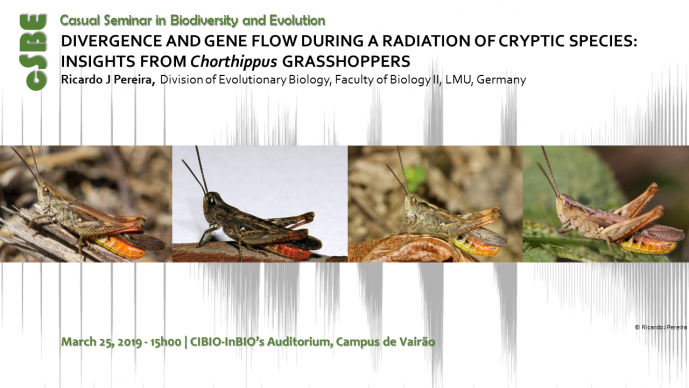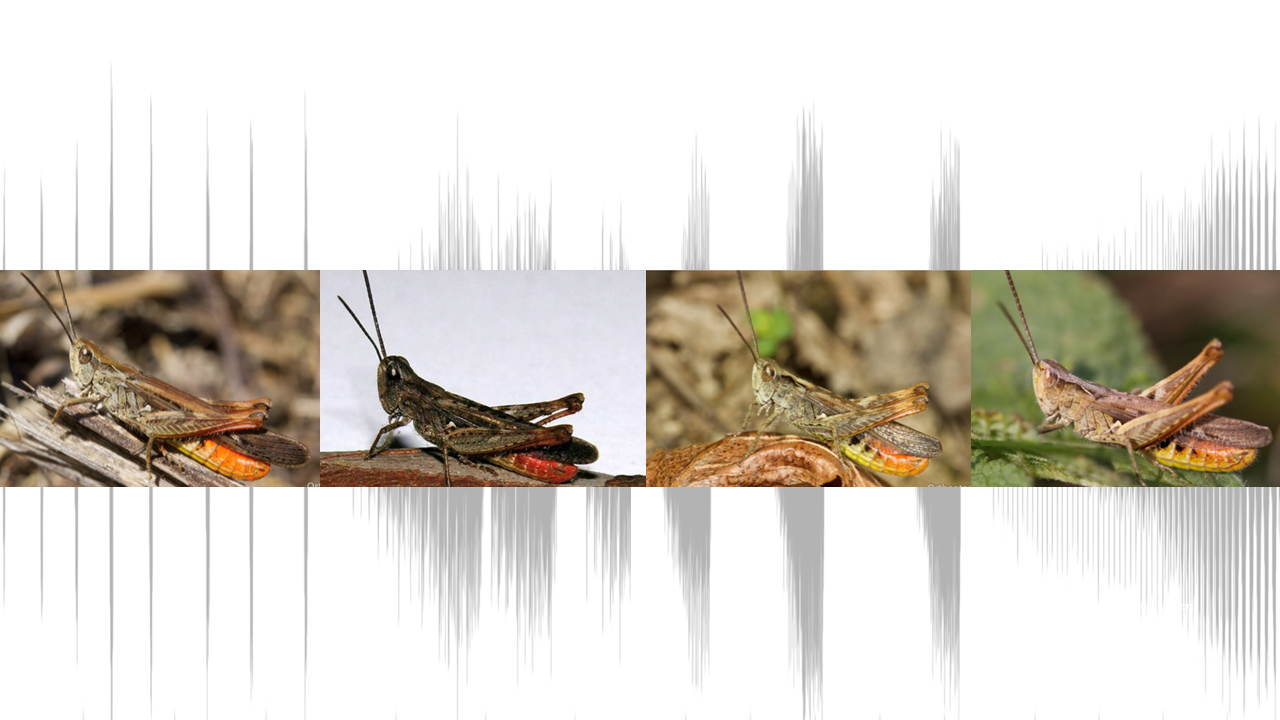DIVERGENCE AND GENE FLOW DURING A RADIATION OF CRYPTIC SPECIES: INSIGHTS FROM Chorthippus GRASSHOPPERS

CASUAL SEMINAR IN BIODIVERSITY AND EVOLUTION

Adaptive radiations provide a great opportunity to understand the evolutionary processes contributing for species formation. Theoretical and empirical studies have shown that radiations are facilitated when a trait under divergent natural selection is also involved in mating cues (i.e. magic traits). It is yet unclear how quickly and effective are adaptive radiations of species lacking eco-morphologic divergence. We address this question using grasshopper species of the genus Chorthippus that have evolved assortative mating, but can hybridise readily in the lab without noticeable intrinsic incompatibilities. Using transcriptomic tools, we show that different species share the same mitochondrial lineages but already show significant differences in their nuclear genomes, suggesting that they split relatively recently. We show that ancestral gene flow has occurred following species formation, probably before post glacial expansion. Nevertheless, species do not show ongoing gene flow in current sympatric localities, showing that complete reproductive isolation is established. These results suggest that rapid radiations can occur due to divergence in mating cues and in the absence of strong divergence selection, resulting in cryptic species that are genetically, morphologically and ecologically identical but otherwise behave as good biological species.
Hybridization is common throughout the tree of life, and plays profound impacts for patterns of biodiversity, leading to species collapse, rapid adaptation or completion of species formation. Ricardo J Pereira explores the diversity of natural hybridization systems, including invertebrates, amphibians, and mammals, in both field- and lab-based approaches, to provide insights on the process of species formation. In particular his research tackles the following fundamental questions: How do genes interact with each other or with the environment?; How do these interactions result in fitness changes in individuals?; How does fitness affect species splitting or fusion?
[Host: Catarina Pinho, Functional Biodiversity]
Image credis: Ricardo J Pereira